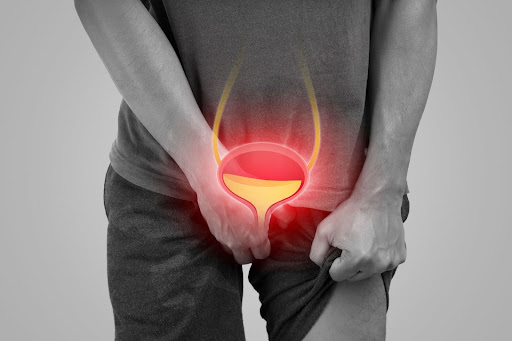
Urinary retention, a condition characterized by the inability to empty the bladder completely, is a medical concern that can affect individuals of all ages and backgrounds. However, when it comes to men, this condition may increase in likelihood. Exploring the facts of this condition in men is crucial for understanding its causes, symptoms, diagnosis, and available treatment options.
Understanding Urinary Retention
Urinary retention occurs when the bladder does not empty fully during urination or is unable to empty at all. In men, this condition can manifest as either acute or chronic, each with its distinct characteristics. Here at Alliance Urology, we are here to educate you on urinary retention.
1. Acute Urinary Retention:
Acute urinary retention is a sudden inability to urinate, causing severe discomfort and often necessitating immediate medical attention. This abrupt onset is frequently linked to an obstruction in the urinary tract, such as an enlarged prostate, kidney stones, or a urinary tract infection. Men experiencing acute retention may find themselves in significant pain and discomfort, requiring intervention to relieve the blockage and address the underlying cause.
2. Chronic Urinary Retention:
Chronic urinary retention, on the other hand, develops gradually over time. It may not be as immediately noticeable as the acute form, but it can lead to persistent discomfort, frequent urinary tract infections, and potential damage to the bladder and kidneys. Chronic retention often results from conditions like an enlarged prostate, nerve dysfunction, or urethral strictures.
Causes of Urinary Retention in Men:
Several factors contribute to this condition in men, with some of the most common causes including
Prostate Enlargement (Benign Prostatic Hyperplasia – BPH):
As men age, the prostate gland may enlarge, squeezing the urethra and impeding the normal flow of urine. This is a prevalent cause of retention in older men above the age of 50.
Neurological Conditions:
Diseases or injuries affecting the nerves that control bladder function can lead to retention. Conditions such as multiple sclerosis, stroke, or spinal cord injuries may disrupt the normal signaling between the bladder and the brain.
Medications:
Certain medications may contribute to urinary retention. It’s essential for individuals to communicate any changes in urinary patterns to their healthcare providers, especially if they are taking medications with potential side effects on bladder function.
Urethral Stricture:
Narrowing of the urethra due to scar tissue (urethral stricture) can impede the flow of urine, leading to retention. This condition may result from inflammation, injury, or prior medical procedures.
Symptoms:
Recognizing the symptoms of urinary retention is crucial for timely intervention. Common signs include
Difficulty Initiating Urination:
Men experiencing retention may find it challenging to start the flow of urine despite feeling the urge to do so.
Weak or Intermittent Stream:
The urinary stream may be weaker than usual or may start and stop intermittently.
Incomplete Emptying:
A persistent feeling of not fully emptying the bladder after urination is a hallmark symptom of urinary retention.
Pain And Discomfort:
Men may experience pain or discomfort in the lower abdomen or pelvic region.
Diagnosis And Treatment:
Diagnosing the cause of urinary retention may include medical history, physical examination, and often specialized tests. Common diagnostic tools include uroflowmetry, cystoscopy, and imaging studies.
Treatment options for retention depend on the underlying cause and the severity of the condition. Interventions may range from medications to relieve prostate-related issues to catheterization for immediate relief in acute cases.
For individuals experiencing any symptoms indicative of urinary retention, consulting with a healthcare professional is the crucial first step toward a diagnosis and tailored treatment plan. Alliance Urology Specialists is home to an expert team of urologists who are committed to providing comprehensive care to adults with urologic disorders as well as other men’s health issues. If you are experiencing the symptoms of urinary retention, call our office at (336) 274-1114 to make an appointment.

